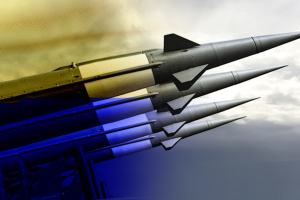Public opinion in Donbas: July 2017
The Ilko Kucheriv Democratic Initiatives Foundation (with engagement of the "Ukrainian Sociology Service" network) carried out polling on government-controlled territories of Luhansk and Donetsk regions: July 1-11, 2017 in Donetsk region and July 8-26, 2017 in Luhansk region. In general, 500 adult respondents from each of the regions (except for occupied territories) were polled based on representative sample. The sample is representative in terms of such indicators as gender, age, education and place of residence. Margin of error amounts to 4.6%.
The polling was carried out under the project "Reintegrating Donbas by raising public participation in solving key problems of local communities" with financial support of the British Embassy in Ukraine.
Data of nationwide polling conducted by the Ilko Kucheriv Democratic Initiatives Foundation (funded by "MATRA" Program of the Embassy of the Kingdom of Netherlands in Ukraine) in June 2017 are provided for comparison purposes.
- Both majority of the population in Donetsk and Luhansk regions support enlargement of powers and resources of local government administrations: 49% of respondents in Luhansk region and 50% of respondents in Donetsk region fully or rather support decentralization. At the same time, population has different views on consequences of decentralization, which range from optimistic (20% of respondents in Luhansk region and 14% of respondents in Donetsk region believe that citizens will get new means of influence on authorities, 27% of respondents in Luhansk region and 29% of respondents in Donetsk region expect that quality of services provided to citizens will improve) to pessimistic (17% of respondents in Luhansk region and 22% of respondents in Donetsk region are rather afraid of more rapid desolation of villages as a result of decentralization processes, while 14% of respondents in Luhansk region and 29% of respondents in Donetsk region believe that processes of enlargement of powers of local authorities will lead to appearance of local "princelings"). In general, citizens of Donetsk region are more pessimistic about decentralization than citizens of Luhansk region: 52% of respondents in Donetsk region and 30% of respondents in Luhansk region expect negative consequences, while differences in levels of optimism are smaller: 47% among respondents in Luhansk region and 43% of respondents in Donetsk region (each third citizen of Luhansk region is undecided).
- At the same time, majority of the population of both Donetsk and Luhansk regions (49%) has not noticed any changes resulting from use of additional funds received by local budgets during the recent years. However, in Luhansk region, more people have noticed a change for the better (28% as compared with 21% in Donetsk region) and less people have noticed a deterioration (19% as compared with 24% in Donetsk region). As compared with other regions, Donbas – along with Western Ukraine – is a region where the largest share of population has noticed a change for the better (16% on average in Ukraine) and, at the same time, along with South of Ukraine it is a region where the largest share of population has noticed deterioration (16% on average in Ukraine).
- In both regions, doubts whether local authorities will manage to cope with new powers they will get in the course of decentralization prevail. Citizens have become less confident about it during the recent year: fully confident respondents account for 10% (15% in 2016), rather confident respondents account for 32% (37% in 2016), while 29% of respondents have strong doubts about it (20% in 2016), and 17% believe it is not possible (10% in 2016). The largest share of those confident in capabilities of their local authorities is observed in Western Ukraine (50% of "fully" or "rather" confident respondents), while the lowest share is observed in the South of Ukraine (32%).
- 38% of respondents in Luhansk region and 34% of respondents in Donetsk region believe that urgent problems of their cities (villages) are being more or less solved. Financial and social issues are considered by respondents to be the most urgent: resumption of enterprises operation, new jobs creation (64% in Luhansk region and 50% in Donetsk region), increase of pensions, salaries and welfare benefits (42% and 40% respectively), restoration of destroyed infrastructure (44% and 25%), organization of medical servicing (33% and 23.5%). Among these issues, only problems of restoration of destroyed infrastructure are being solved successfully (it was noticed by 17% of respondents in Luhansk region and 25% of respondents in Donetsk region). A large share of population has not noticed a single problem solved successfully (49% in Luhansk region and 52% in Donetsk region).
- If citizens of the region could distribute local budget, they would allocate most of the funds for encouraging of economic growth – resumption of enterprises operation and new jobs creation (63% in Luhansk region and 56% in Donetsk region). Other priorities include repairs and improvement of infrastructure (56% in Luhansk region and 28% in Donetsk region), increase of welfare benefits for disabled and retired persons (22% and 36% respectively), improvement of medical servicing (25% and 27%), city/village public welfare (24% and 20.5%), helping people to start small and medium business (26% and 17%).
- A large share of citizens in Luhansk and Donetsk regions (32% and 38% respectively) experience problems in protecting their rights: mainly economic rights (44% in Luhansk region and 35% in Donetsk region) and rights to social protection (34% in Luhansk region and 15% in Donetsk region). At the same time, a certain share of the region's population experiences problems with the right to safety and protection by the state (12% in Luhansk region and 9% in Donetsk region).
- As compared with other regions of Ukraine, Donbas demonstrates greater readiness for peace "at any price" (41% of respondents). Both in Donetsk and Luhansk regions, share of citizens who support any compromise (44% and 38% respectively) is slightly higher than share of those who believe that not all compromises are acceptable (39% and 34%). At the same time, Donbas also demonstrates the lowest share of those who believe that peace may be restored by force only.
- In opinion of 38% of Donbas residents, successful restoration of normal life on territories controlled by Ukraine is a key to resolve the conflict. At the same time, 22% of respondents (32% in Donetsk region and 12% in Luhansk region) believe that forcing Russia to stop intervening into the Donbas conflict (tightening of international sanctions, international institutions' pressure on Russia) is an efficient step towards conflict resolution. Granting "DPR" and "LPR" special status within territory of Ukraine (14%), declaring Russian as the second state language (14%), and refusal from prospects of joining NATO (12%) are less popular steps towards peace according to respondents.
- Half of respondents in Donetsk and Luhansk regions (49%) have relatives and friends who live on uncontrolled territories of Donbas. Absolute majority of them maintains some kind of contact with them (93.5% of those who have relatives on uncontrolled territories in Luhansk region and 88% of those in Donetsk region). Intensity of contacts between residents of controlled and uncontrolled territories is higher in Luhansk region (57% of respondents maintain regular contacts) than in Donetsk region (21.5%).
- Conflict had no impact on relations with relatives for relative majority of polled Donbas citizens who have relatives on uncontrolled territories (44.5%). However, 25% of respondents noted that the conflict had worsened their relations leading to various controversies or even discontinuance of communication. Conflicts are more frequent among citizens of Donetsk region (38% as compared with 11% in Luhansk region). In case of 16% of citizens of both regions, the conflict drew them together with their relatives and friends who live on another side of the conflict line.
- In general, less than 3% of Donbas residents have already obtained new biometric passport for travels abroad. This figure is somewhat lower than in the West (11%), South (7.5%) and Center (7%) of Ukraine. Another 3% of citizens have old passport for travels abroad with valid Schengen visa. Share of citizens who have passport without Schengen visa is higher in Donetsk region (30%) than in Luhansk region (14%). Consequently, share of citizens who have any passport for travels abroad is higher in Donetsk region (37%) than in Luhansk region (18%). Average Donbas figure is comparable to that of all other regions, except for Western Ukraine where much more citizens have a passport for travels abroad (44%).
- 81% of Donbas residents have never been to any country of the European Union. Share of those who visited the EU at least once is higher in Donetsk region (24%) than in Luhansk region (15%). At the same time, majority of Donbas population (59%) visited Russia: 65.5% of citizens of Luhansk region and 52% of citizens of Donetsk region. Majority of those who visited Russia did it several times.
- Absolute majority of Donbas population (63.5%) does not support introduction of visa regime with Russia. Support of this initiative is somewhat higher in Donetsk region (29%) than in Luhansk region (10%). As compared with other regions, share of Donbas citizens who support an idea of visa regime with Russia (19%) is slightly higher than in the South (14.5%), similar to that in Eastern Ukraine (20%) and slightly lower than in the Center of Ukraine (28%). The West is the only macro region of Ukraine where absolute majority of citizens supports introduction of visa regime with Russia (60%).
- Half of Donbas residents (51%) identifies himself/herself as a citizen of Ukraine, while 34% of them bear regional identity (i.e. identify themselves as residents of a city/village or a region of their residence). National identity significantly prevails over regional one in Luhansk region (62% vs. 22%), while in Donetsk region there are more bearers of regional identity (47%) than those of national identity (40%).
- In Luhansk region, only 14% of respondents support prospective EU membership, 27% of respondents support membership in Customs Union with Russia, while relative majority (31%) believes that Ukraine shall not join any of these unions. In Donetsk region, support of EU membership is considerably higher (32%), support of Customs Union is somewhat lower (19%), while relative majority (36%) similarly prefers remaining outside of both of these unions. As compared with other regions of Ukraine, Donbas demonstrates the lowest support to EU membership (23%) and the highest support of joining the Customs Union with Russia (23%).
- There are much more supporters of Ukraine's membership in NATO (30%) in Donetsk region (30%) than in Luhansk region (10%). At the same time, majority of population of both Donbas oblasts prefers neutral status of Ukraine (39% in Luhansk region and 36% in Donetsk region). A certain share of population still hopes for military alliance with Russia and other CIS countries as the security option: 17% in Luhansk region and 16% in Donetsk region.
- Holding of pre-term parliamentary elections is generally supported in Donetsk region (51% – "in favor", 41% – "against") and not supported in Luhansk region (32.5% – "in favor", 46% – "against"). 56.5% of respondents in Luhansk region and 52% of respondents in Donetsk region declared their readiness to participate in the elections.
- Significant share of potential voters in Donbas has not decided on their political sympathies. In Luhansk region, 24% of respondents are not ready to participate in elections, while 43.5% of respondents have not chosen any party (68% in total). Among political parties, only "Opposition Bloc" overcomes election barrier confidently in Luhansk region (12.8% of those ready to participate in elections). Oleh Liashko's "Radical Party" (4.1%) and party "For Life!" (3.8%) also have chances to overcome the threshold. 57.4% of potential voters in Luhansk region have not decided on their electoral choice.
- Voters in Donetsk region are somewhat more decided than in Luhansk region: 34% of citizens would not participate in the elections, 18% – has not decided yet. "Opposition Bloc" is a leader among political parties - 12.2% of potential voters are ready to vote for this party. Parties "Batkivshchyna" (7%) and "For Life!" (7%) overcome the election barrier, parties "Our Land" (4.9%), Oleh Liashko's "Radical Party" (4.9%), "Movement of New Forces" (4.3%), "Samopomitch" (3.7%), Petro Poroshenko's Bloc "Solidarity" (3.7%) have chances to overcome the threshold, too. 28% of those who has an intention to participate in the elections have not yet decided on their choice.








